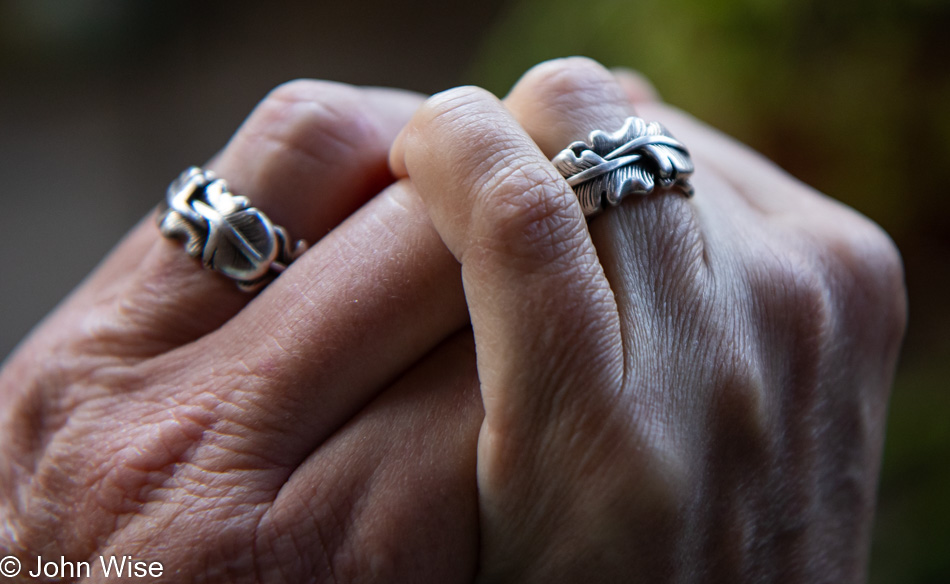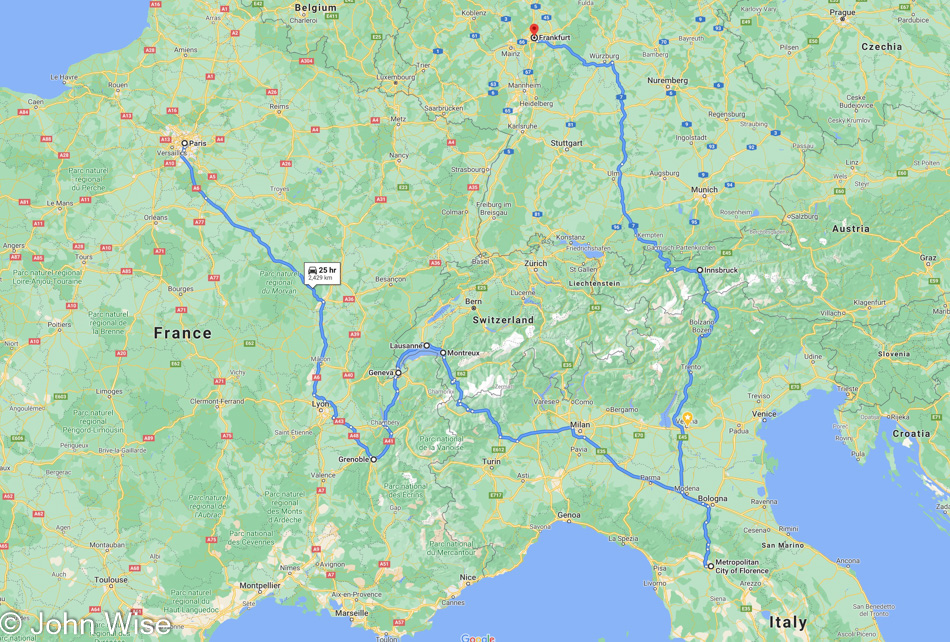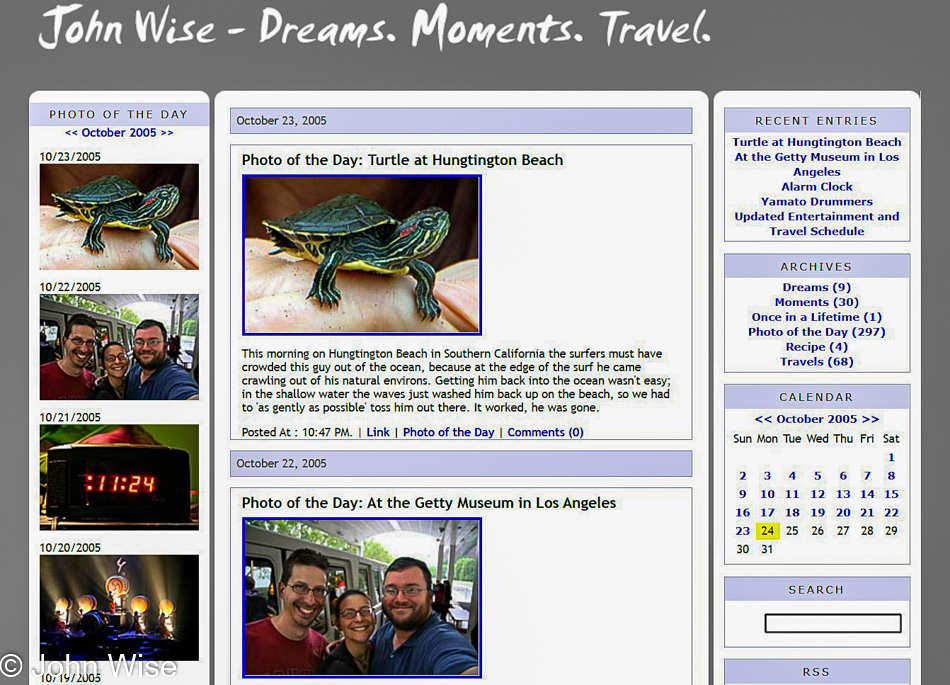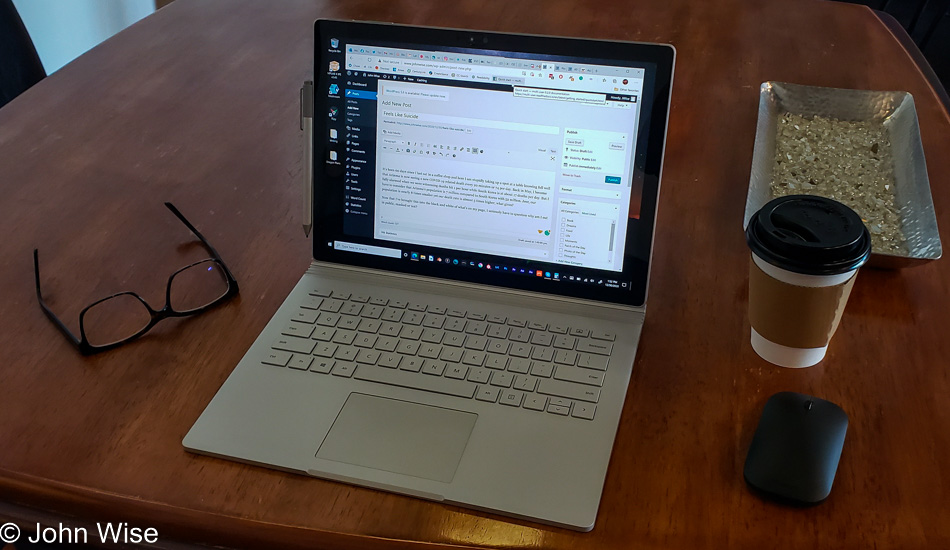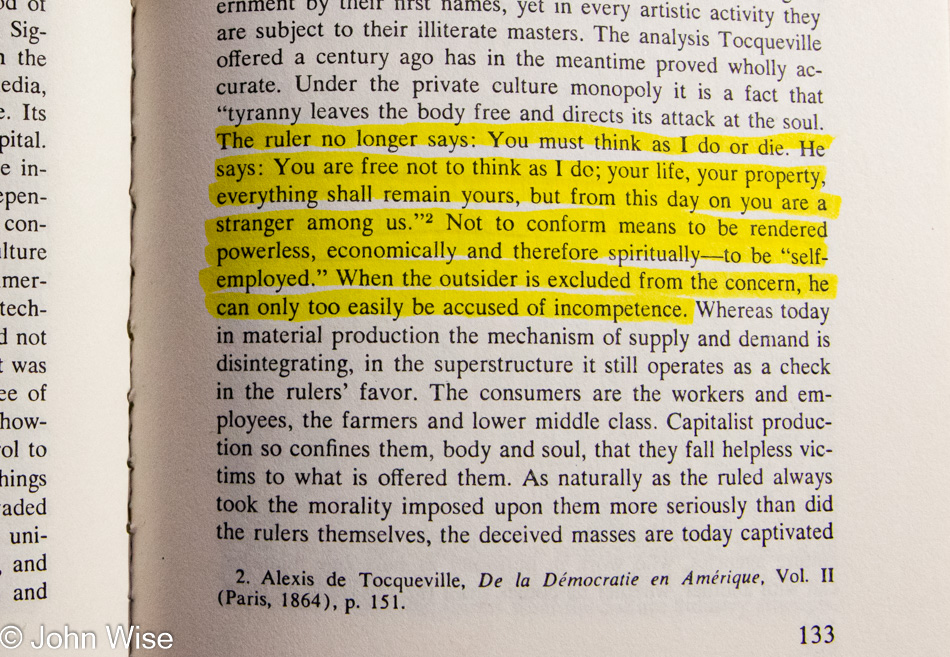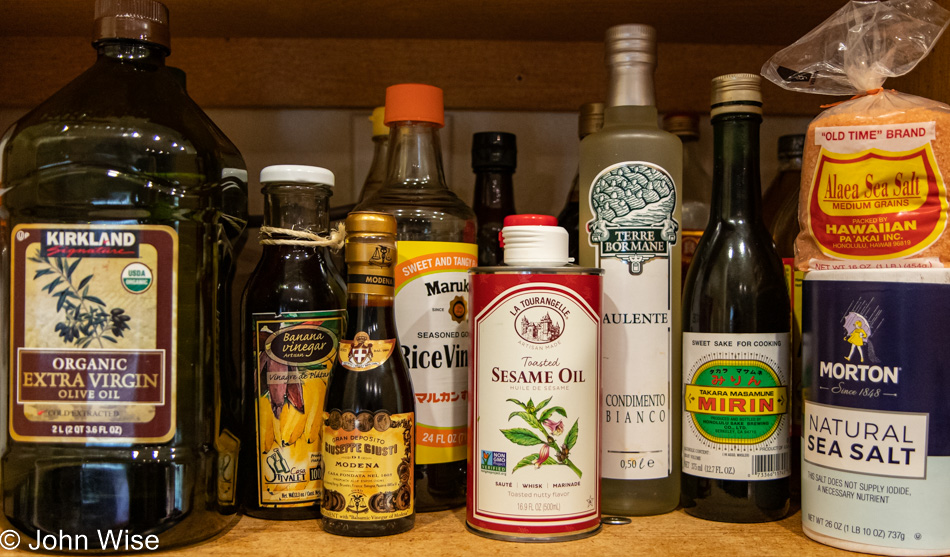
In only 95 days, Caroline and I will have been self-isolating for one year. First of all, the definition of self-isolation for us is along the lines of being aware of our proximity to others, always wearing a mask when near others, walking for exercise much more than ever before, being aware of how much sunlight we are getting while supplementing it with vitamin D, not being as spontaneous to go places as we’d like to, staying out of as many businesses as possible, reducing how often we shop in person, and essentially eliminating visits to restaurants.
What this post is really all about, though, is our relationship with food during the pandemic. We started hoarding food (I hate to use that word, but it is what it is) in January. Back then, I’d say it was more like putting some extra things to the side just in case what was happening in China started spreading. By February, I’d have to admit that I hit the panic button a little, and unbeknownst to Caroline, I started squirreling stuff away in the nooks and crannies of our cabinets as I shifted stuff and packed food supplies in an ever-increasing density. When March rolled around and the first wave of panic buying hit the general public, our freezer was packed solid, and I really couldn’t reasonably store anything else in our kitchen. I was guessing that we had enough food on hand to last us a solid 90 days.
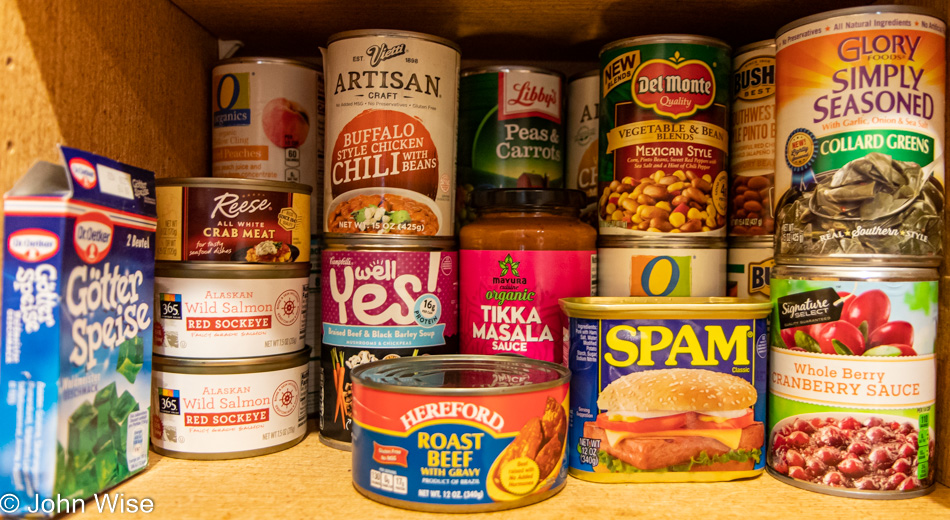
We then encountered a logistical problem; we didn’t know where, in 9 cabinets spread between 19 shelves, we’d find stuff. The fridge was easy because that was all fresh food that needed to move out before it rotted. We needed an inventory, and that’s just what we created. A simple affair built in a spreadsheet with over 400 line items. We put a piece of tape at the corner of each door that had food behind it, numbered it, and counted the shelves from the bottom up, starting with the number 1. If we needed a jar of pickled asparagus, we could see that there should be a bottle in cabinet 6, shelf 2. This became our grocery store.
When we needed fresh foods I tended to try and use Costco as much as possible as they early on asked customers to wear masks and put up plastic dividers between customers and cashiers. Even though it’s only two of us, 10 lbs of onions could be gone through, and usually, only one onion would go bad while we worked through them. Six avocadoes paired with two containers of cherry tomatoes to make tomato/avocado salads to accompany meals or to eat for lunch. Two dozen eggs last us three weekends as we only eat a hot breakfast on Saturday and Sunday to make up for not being able to go out for a traditional breakfast at some favorite local joint. Fruit, some veggies, and meat were mostly coming from Costco. Things we wanted in smaller amounts, as we really couldn’t eat 4 lbs of bell peppers fast enough, were gotten from a nearby grocery store, typically right after opening or after 8:00 p.m., so I could avoid the crowds. Caroline very rarely, if ever, went to the store with me during the first 4 or 5 months of the pandemic.
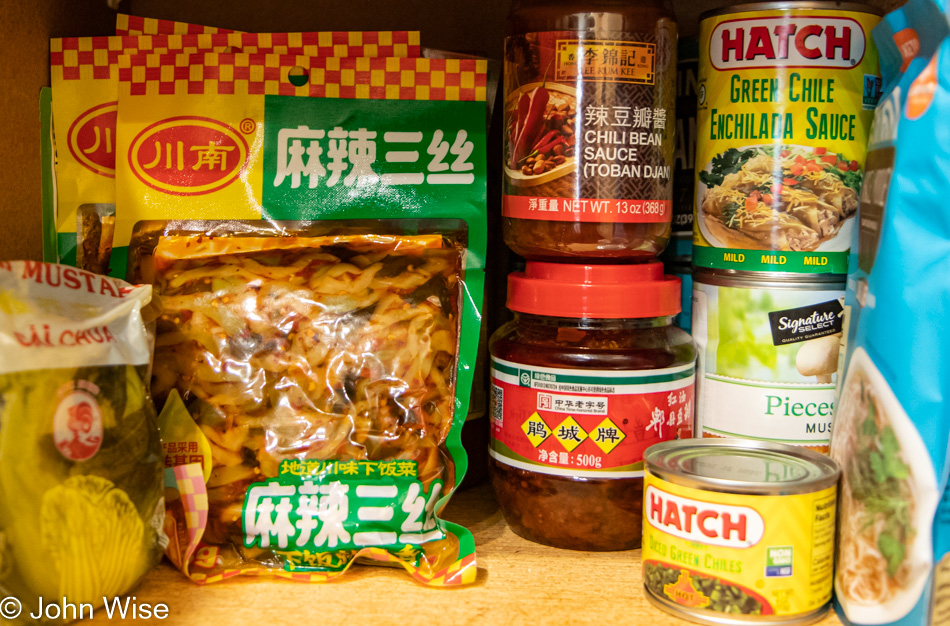
While the kitchen is my responsibility, the data is Caroline’s. As I’d ask where the chipotle peppers in adobo sauce are, she’d give me the coordinates, and then she’d remove it from the inventory, eventually adding the item to the “Removed” page in our spreadsheet. This week, the “Removed” page surpassed the “In Inventory” page, so I thought I’d take a closer look at it, and this is what I found.
The first item was consumed and removed from inventory on March 24, 2020. Looking at what followed, I am surprised by how much we’ve consumed or, in some cases, how I thought we ate more of something, but the data doesn’t support it. Somehow, we’ve eaten 4.6 lbs of nopalitos, aka cactus pads. Not too surprising we’ve used 9.5 lbs of bacon. In no particular order, we’ve consumed 12 lbs of canned black beans, an amount of butter I’d rather not share, only 6 lbs of chicken, 19 quarts of chicken stock (we make a lot of bean dishes starting with dried beans), 24 filet mignon, 4.5 lbs of ground beef, 28 hotdogs, 2.6 gallons of pasta sauce, 24 pork chops, 50 ounces of pozole, 4.5 lbs of prunes, over 15 lbs of brown rice, almost a gallon of salsa, countless tomatoes, avocadoes, six cans of spam, nuts and seeds for the roughly 12 lbs of granola I make a month and probably about a gallon of soy milk per month to accompany it. I also know we’ve been through about 4 lbs of crunchy stuff that’s an integral part of Burmese salads, 5.5 lbs of coffee beans, eight cans of enchilada sauce, and 13 packages of preserved Chinese vegetables.
With more than 400 line items, often with multiple units of particular things, we need to keep in mind what’s languishing and at risk of being forgotten lest we have to throw a spoiled product away. The inventory isn’t enough to keep us aware of how things move out of our kitchen, so every couple of weeks, Caroline sends me the updated list that I scour to find things to throw into our meal plan. At this point, since fresh food is easily available in our markets, using some foods that we collected early on that have longer shelf lives, such as our 24 ounces of soy curls meat substitute or nearly 2 pounds of canned ground beef, is becoming a challenge. We loathe throwing food away, though, and sooner or later, we’ll get to these ingredients, but with fresh options easily at hand, it’s a bit difficult.
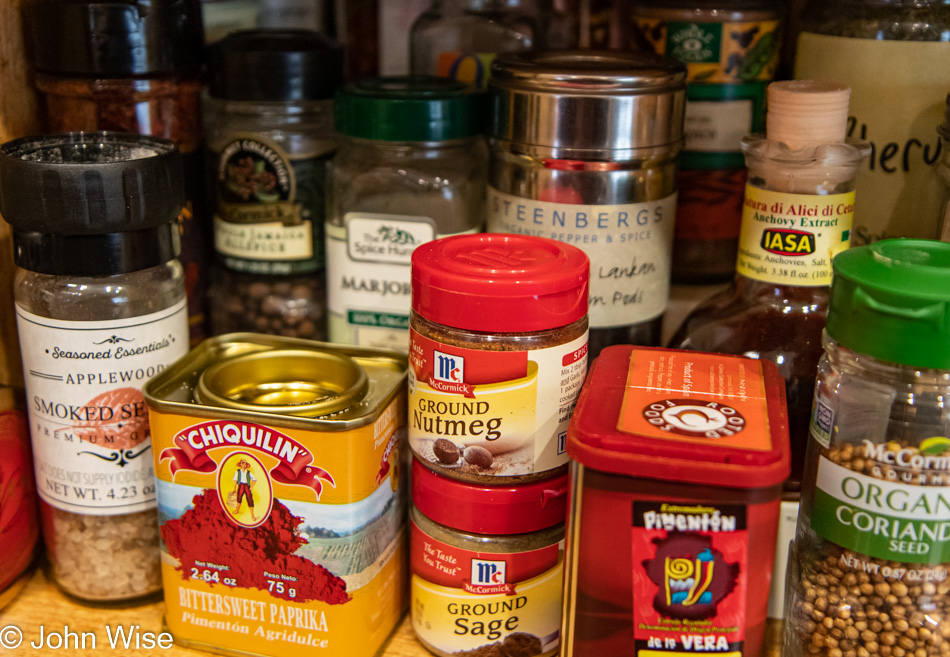
The point of my blog entry here is that we have never been so aware of what and how much we eat on a regular basis. That wasn’t possible when the majority of our meals came from restaurants. Had you asked me a year ago what the percentages were, I probably would have said that 20-30% of our meals were at restaurants, but now, after so many months of cooking and cleaning dishes, I’d say that probably 75% of our meals were prepared by someone else.
To this day, we still do not opt for convenience by purchasing fully prepared foodstuffs aside from pasta sauce, some soups, or pasta. As much as possible, we use whole foods, starting with fresh, before we resort to frozen or canned. Today in our freezer are nearly 5 lbs of walleye filets, 5 lbs of perch, 9 lbs of ribeyes from Texas, a lamb roast, 4 lbs of pork belly, skirt steaks, filet mignon, chicken thighs, various sausages, scallops, and ground beef. Our pantry is still overflowing with a bunch of Chinese veggies, dried matsutake, porcini, boletes, red reishi, and morel mushrooms, six flavors of spam, and a bunch of other things that came from the shelves that others don’t typically shop from.
Where to go from here? I want an app that follows my eating habits and brings me into new food experiences. Finding recipes from other countries requires us to have an idea of what we are looking for when we may not have a clue as to what’s popular in the homes of the people from Pohnpei, for example. While we have almost every spice available in one of our cabinets, and I’m not afraid to shop at Eastern European, Middle Eastern, Asian, South Asian, African, and Latin American stores, I still feel that our reach into the various ethnic cuisines from around the globe is too limited. We have the financial resources to explore, but without the general curiosity of the masses for something similar, it doesn’t seem like there’s a market yet for tasting authentic flavors from distant lands.
